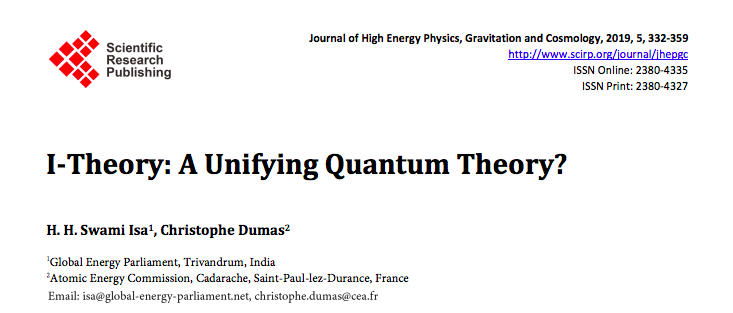
Global Energy Parliament
News
New "I-Theory" Article Published in Scientific Journal
26 February 2019

February 26, 2019: The Global Energy Parliament is pleased to announce the publication of a scientific article co-authored by His Holiness Jagadguru Swami Isa, Founder of the Global Energy Parliament, and Dr. Christophe Dumas, the Director of the GEP Research Centre entitled, "I-Theory: A Unifying Quantum Theory?"
Appearing in the April 2019 edition of the peer-reviewed 'Journal of High Energy Physics, Gravitation and Cosmology,' the article is now online at: https://www.scirp.org/journal/PaperInformation.aspx?PaperID=90713
The article introduces Swami Isa's "I Theory" in the context of several established theories of cosmology and physical sciences, such as the Big Bang theory, Quantum theory, Theory of General Relativity, and Preon Theory.
Scientists have always searched for "the unifying theory" or the "theory of everything," which can tie together all branches of knowledge. Such a theory provides a coherent, theoretical framework that fully explains and links together all aspects of the universe and ourselves.